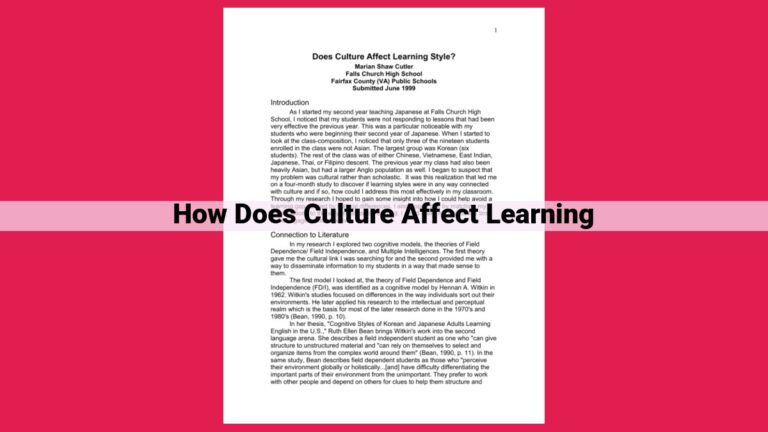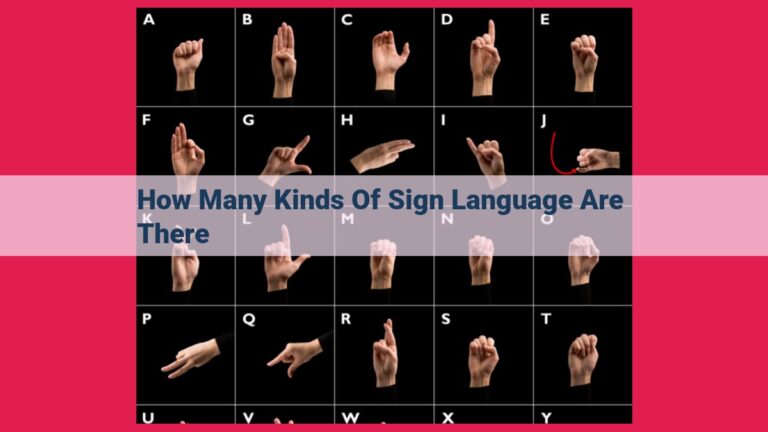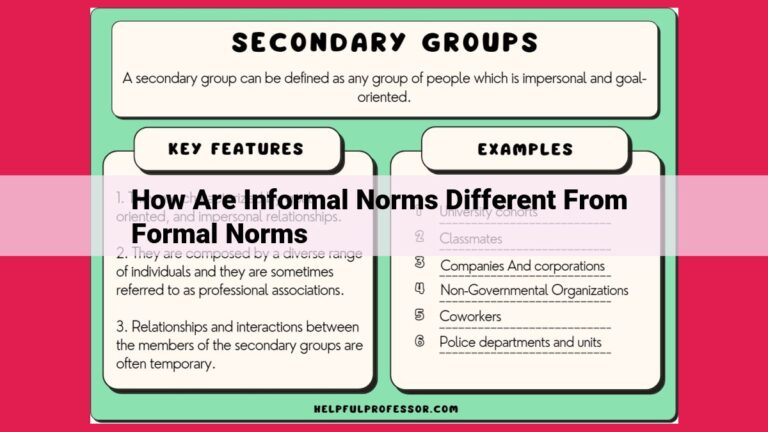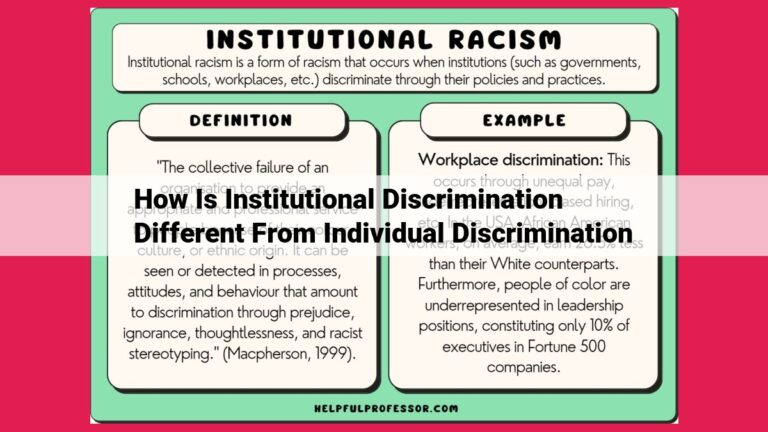Police Socialization: Its Role In Shaping New Officers’ Values And Perspectives
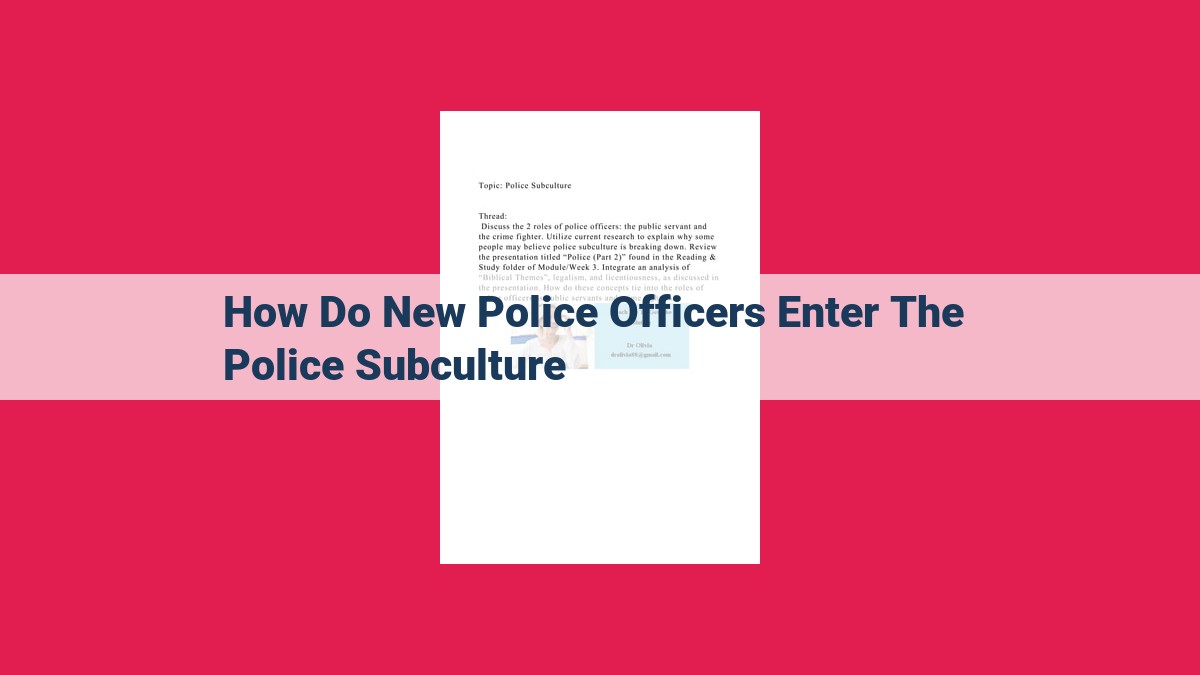
New police officers enter the police subculture through a socialization process that begins in the recruit academy and continues during field training. FTOs mentor recruits and reinforce departmental values, while the informal socialization process teaches recruits the lingo and customs of the force. Peer pressure and the “blue wall of silence” also influence new officers’ behavior and values. This socialization process shapes new police officers’ perspectives and identities, highlighting the importance of understanding these factors for effective recruitment and training.
- Define police subculture and its significance for new officers.
- Outline the process of socialization into the police culture.
Understanding the Police Subculture: A Journey of Transformation
The world of law enforcement is a complex and fascinating one, where officers navigate a unique subculture with its own set of values, beliefs, and norms. For new officers entering this realm, understanding this subculture is critical to their success and well-being.
The police subculture is a set of shared norms, values, and behavioral patterns that exist within police departments. It influences how officers perceive their role, interact with each other and the public, and make decisions in challenging situations. Socialization into this subculture is a gradual process that begins from the moment an officer joins the force and continues throughout their career.
The recruit academy serves as a crucible of transformation, where new officers undergo rigorous training to master the technical skills and knowledge necessary for their role. However, beyond the formal curriculum, the informal socialization process plays a significant role in shaping the perspectives and behaviors of recruits. This process involves learning the unwritten rules, customs, and lingo of the force, as well as developing a sense of trust and solidarity within the group.
Field training officers (FTOs) act as mentors and guides, helping recruits navigate the practical realities of policing. They reinforce departmental values and expectations, influence peer pressure, and play a crucial role in shaping the ethical conduct of new officers.
Peer pressure is also a powerful force in the socialization process. Fellow recruits and experienced officers influence each other’s behavior and values. Positive peer pressure can reinforce ethical conduct and a commitment to serving the community, while negative peer pressure can lead to complacency, rule-breaking, and a lack of accountability.
One of the most controversial aspects of the police subculture is the “blue wall of silence”, an unwritten code that protects officers from being held accountable for misconduct or excessive force. This code stems from a strong sense of loyalty and solidarity within the force, but it can have detrimental effects on public trust and accountability.
Understanding these factors that contribute to the socialization process is crucial for effective recruitment and training of new police officers. By addressing challenges and fostering a culture of integrity, law enforcement agencies can ensure that their officers are equipped to serve their communities with professionalism, compassion, and unwavering commitment to justice.
The Recruit Academy: A Crucible of Transformation
Step into the hallowed halls of the recruit academy, a sanctuary of rigorous training and profound transformation, where aspiring police officers embark on a transformative journey. Within these walls, they forge an unbreakable bond with the blue code and immerse themselves in a world where loyalty and solidarity reign supreme.
Beyond the confines of textbooks and lectures lies the crucible of practical experience, where recruits are thrust into the heart of real-world policing under the watchful eyes of seasoned field training officers (FTOs). These officers serve as mentors, guiding and shaping the recruits’ perspectives, instilling in them the department’s values and cultural norms.
As recruits navigate the treacherous waters of the academy, they confront an unwritten code of conduct that transcends the confines of official manuals. It’s a code forged in the fires of shared experiences, where trust and camaraderie blossom amidst the challenges of the unknown. Every encounter, every triumph, and every setback becomes an invaluable lesson in the unspoken language of law enforcement.
The Role of Field Training Officers in Shaping Perspectives
As recruits embark on their journey through the police academy, they enter a transformative environment that molds their perspectives and behaviors. While the formal training provides the technical skills necessary for the job, it is the Field Training Officers (FTOs) who serve as mentors and guides, shaping the ethical and professional values that will define their careers.
Practical Guidance and Expertise
FTOs are experienced officers assigned to work alongside new recruits during their initial deployment in the field. They provide practical guidance, teaching recruits the nuances of policing. These FTOs demonstrate proper techniques, share their knowledge of the community, and help recruits navigate the challenges of their new role.
Reinforcing Departmental Values
Beyond technical instruction, FTOs also play a crucial role in reinforcing departmental values and cultural norms. They model integrity, professionalism, and empathy in their interactions with the public and colleagues. Through their example, they instill in recruits a sense of pride and responsibility that becomes integral to their policing identity.
Influence on Peer Pressure and Ethical Conduct
In a field where camaraderie and peer pressure are strong, FTOs have a significant influence on the ethical conduct of recruits. They set clear expectations and guide recruits through the complexities of interactions with suspects, witnesses, and fellow officers. They foster an environment where questioning authority and holding oneself accountable are encouraged.
The Informal Socialization of Police Officers: Unveiling the Unwritten Codes and Customs
As a newly minted officer, navigating the intricate web of police culture can be a daunting task. Beyond the structured training provided by the academy, recruits are immersed in an informal socialization process that shapes their perspectives, behaviors, and values. This unspoken code, etched into the hearts of seasoned officers, plays a profound role in shaping the very essence of law enforcement.
Learning the Lingo and Customs: A Language of the Force
Every profession has its own unique lexicon, and policing is no exception. From the cryptic codes used over dispatch radios to the slang exchanged between officers, recruits must decipher a language that binds them to their comrades. It’s a language that conveys a shared understanding, a sense of belonging. As they learn the lingo, recruits begin to master the vernacular of the force, signaling their acceptance into the brotherhood or sisterhood of blue.
Trust Within the Group: Bonds of Brotherhood and Sisterhood
In the high-stakes world of policing, trust is paramount. Recruits are taught to rely on their fellow officers, knowing that they’ve got their backs in the face of danger. Through shared experiences and intimate moments, they forge unbreakable bonds that transcend the walls of the station house. It’s this unwavering trust that allows officers to face the unimaginable, knowing that they have a team standing shoulder-to-shoulder with them.
Emphasizing Loyalty and Solidarity: The “Thin Blue Line”
The concept of loyalty is deeply ingrained in police culture. Officers are expected to support their colleagues, even in the face of adversity. This unwavering solidarity, known as the “thin blue line”, has been both praised and criticized. It reflects the belief that officers must stand united against external threats, but it can also lead to officers closing ranks and protecting their own, regardless of the consequences.
Understanding the unwritten codes and customs of police culture is crucial for new officers to succeed and thrive. By embracing these unspoken rules, they can forge meaningful connections, build unshakeable trust, and embody the values that define the noble profession of law enforcement.
Peer Pressure and Identity Formation
As new recruits enter the police academy, they are immersed in a world vastly different from the one they left behind. The academy environment, with its rigorous training and close-knit camaraderie, provides a fertile ground for peer influence to shape the behavior and values of these aspiring officers.
Positive Reinforcement:
Peer pressure within the academy can play a positive role in reinforcing desirable aspects of the police culture. Recruits witness firsthand the importance of unwavering integrity, ethical conduct, and teamwork. Through shared experiences and support, they internalize these values and develop a strong sense of belonging to a community dedicated to justice.
Negative Influences:
However, peer pressure can also have its detrimental effects. The academy can become an echo chamber, reinforcing negative stereotypes and attitudes. Recruits who lack a strong sense of self may succumb to the pressures of conformity, conforming to unethical or unprofessional behavior in an attempt to gain acceptance.
Identity Transformation:
The academy experience profoundly shapes the identity of new officers. Through the process of socialization, they shed their civilian identity and embrace the mantle of a police officer. Peer pressure plays a pivotal role in this transformation, reinforcing the values and behaviors expected of those who wear the badge.
In conclusion, peer pressure within the police academy can be a double-edged sword. While it can foster a positive and supportive environment, it can also lead to negative influences and the erosion of standards. Recognizing this influence is crucial for developing strategies to promote a culture of integrity and ethical behavior within law enforcement.
The “Blue Wall of Silence”: A Veil of Loyalty and Its Consequences
In the realm of law enforcement, an unspoken code of conduct has emerged, known as the “blue wall of silence.” This unwritten creed embodies a staunch loyalty and solidarity among police officers, often leading them to remain tight-lipped when confronted with wrongdoing within their ranks.
The origins of this code can be traced back to a time when policing was a perilous profession, characterized by rampant corruption and a lack of public trust. Officers relied heavily on each other for support and protection, fostering a sense of camaraderie and a deep-seated belief in the importance of guarding their own.
Despite its initial noble intentions, the “blue wall of silence” has evolved into a double-edged sword. While it promotes unity and protects officers from false accusations, it can also shield those who engage in misconduct. When officers choose to remain silent about wrongdoing, they erode public trust and undermine the integrity of the profession.
The potential impact of the “blue wall of silence” on accountability and public trust is profound. By shielding corrupt or unethical officers from scrutiny, it fosters a culture of impunity that can have dire consequences for both the community and the reputation of law enforcement. It can create a climate where misconduct goes unchecked, leading to diminished trust in police and a breakdown in the relationship between officers and the public they serve.
Addressing the challenges posed by the “blue wall of silence” requires a multifaceted approach. Strengthening external oversight mechanisms, promoting a culture of transparency, and encouraging ethical decision-making are crucial steps towards fostering accountability and rebuilding public trust. It is essential for police departments to adopt policies that discourage the blind adherence to this unwritten code and encourage officers to speak up when they witness misconduct.
The “blue wall of silence” is a complex and controversial issue that has both positive and negative implications for law enforcement. By understanding its origins, reasons, and potential consequences, we can work towards creating a police force that is both accountable and trustworthy.

